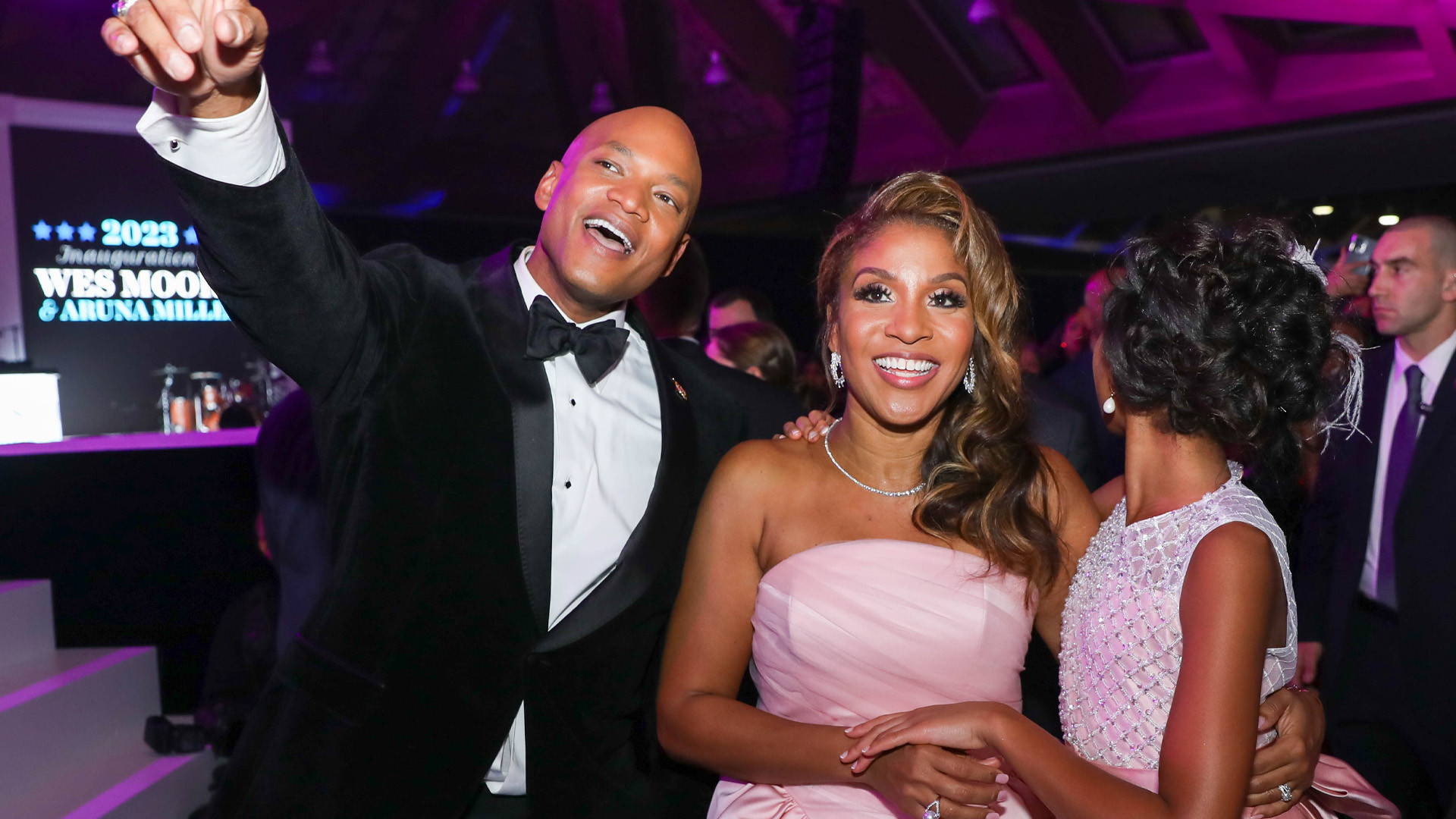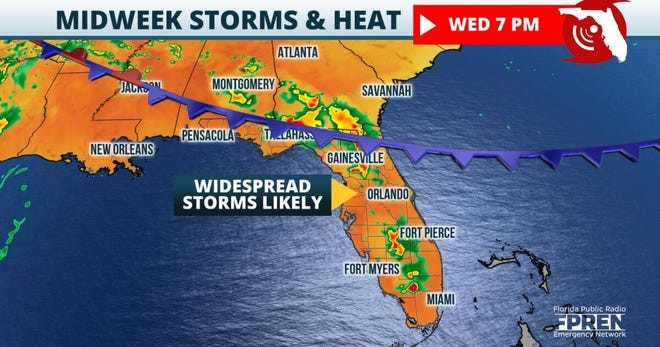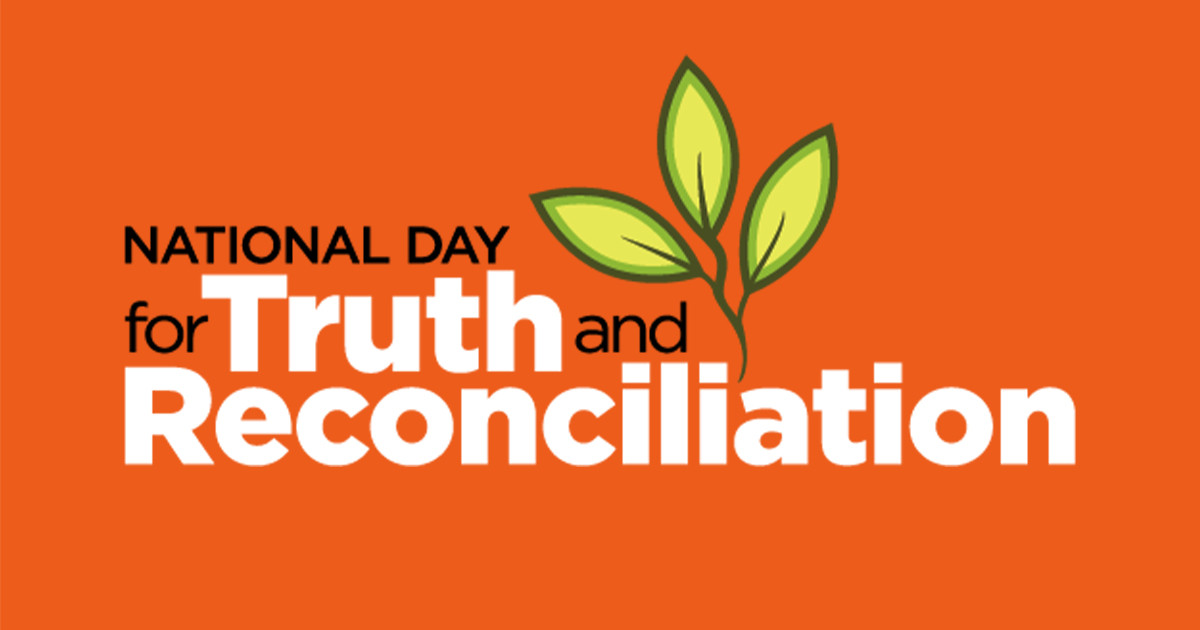Maryland Gov. Wes Moore, an Army veteran of the Afghanistan war, took a jab at former President Donald Trump's medical deferment from the Vietnam War in his speech tonight.
“I joined the Army when I was 17. In fact, I was too young to sign the paperwork. I had to ask my mom to sign the paperwork for me because I don’t have bone spurs,” he said.
Trump's Vietnam deferment was purportedly for bone spurs.
Moore, the first Black governor of Maryland, also spoke on his state's Key Bridge collapse earlier this summer that killed six people. The disaster requires a bridge reconstruction and meant the port of Baltimore was closed for some time.
He said though he spoke with President Joe Biden when the bridge collapsed, it was Vice President Kamala Harris that was one of the first calls in the morning to offer him support.
He didn’t discuss that initiative in his speech, but honored the service of the six workers on the bridge who died “as they fixed potholes on a bridge while we slept.” The bridge collapsed after it was hit by a massive container ship.
He said Maryland “brought closure to the families of the six victims” and got the Port of Baltimore back open in 11 weeks.
Moore’s speech came on the third day of a Democratic National Convention in which he has been among the most coveted surrogate speakers for Harris.
On Monday, Moore, 45, addressed Wisconsin delegates at a breakfast meeting.
“Winning doesn’t just happen,” he said in urging the delegates to get out the vote for Harris. “Nothing is given. Everything is earned.”
Moore’s popularity in Chicago may be as much about what he says as how he says it.
Political conventions are all about rallying the faithful, and Moore “is a charismatic speaker,” said Maryland Democratic Sen. Ben Cardin. “He connects. Everyone in the room thinks that he’s talking to them. He’s really very personable, and that’s important in politics today.”
His appearance at the United Center — and his visits to so many state delegations — have raised his national profile.
In the two years since he entered the national lexicon as a rising Democratic star, Moore has consistently deflected the idea that he would run for president.
“He’s not about mission creep, he’s about being mission-focused,” the first lady said of the governor, who is a combat veteran. “The mission now is to get the vice president elected president of the United States.”
Moore will take the Democratic National Convention stage during prime time Wednesday night and make his best case why Americans should elect Kamala Harris president.
He’ll be speaking to thousands of Democrats, who’ll likely eagerly cheer his words. But that’s not the only audience Moore will aim to reach.
To make the best case for Harris’ presidency — and possibly his own political future — he’ll seek to resonate with American voters that aren’t in Chicago’s United Center or watching him on TV. He’ll need to reach for voters that aren’t yet paying attention, speechwriters and political scientists said.
“What he would like to do is to at least be noticed, to break through, to have something that goes viral,” former political campaign speechwriter Leonard Steinhorn said.
Most convention speeches are forgettable, but a handful have turned lesser-known politicians into presidential contenders. A strong speech and a viral moment could keep Moore’s name on people’s radars long after Thursday’s closing gavel, the American University communication professor said, and could spread his message to millions more voters on social media.
Moore, 45, is one Democrat among a deep bench of party up-and-comers tapped to speak at the convention. He has faithfully defended President Joe Biden for more than a year, hitting the road to talk to voters in Georgia, Wisconsin and elsewhere on behalf of the campaign. Once Biden ended his bid and endorsed the vice president, Moore followed suit and began pitching Americans on Harris.
Though Moore gave reporters some hints he’ll talk of public service and patriotism and said he has no specific assignment from the Harris campaign, his words will likely be vetted by campaign speechwriters, Steinhorn said.
“They’re the ones who are closest to the research, the messaging, the strategy, the polling, the focus groups and everything else,” he said.
That message, whether personal or policy, must squarely align with the campaign’s. To do this, Steinhorn said Moore will want to match themes from his own biography, political vision and accomplishments with the Harris-Walz message of fighting for everyday Americans.
“What they [the party] want to be able to talk about is how Kamala Harris and the Democrats are bringing us into the future,” he said. “That they’re not mired in the past, that they’re problem solvers for the American people.”
With Biden at the top of the ticket, Moore had a clear role as a surrogate. The campaign sent Moore to swing states to meet with Black voters. And his connections with New York’s nonprofit donors helped him raise money for Democrats up and down the ballot.
Wednesday’s speech will be the first glimpse of whether that role will change with Harris at the top of ticket.
Harris, who identifies as Black and South Asian American, has won back some of the Black voters who had pulled away from Biden, but not enough to win, one political expert says.
Political science professor and Democratic pollster Alvin Tillery Jr. says Harris will need to attain Black voter share at levels seen during former President Barack Obama’s two presidential wins, well over 90% in both elections.
Tillery heads Northwestern University’s Center for the Study of Diversity and Democracy and researches voter mobilization. He’s also started a super PAC, the Alliance for Black Equality, and plans to run social media ads to help elect Harris. His pollsters at 2040 Strategy Group have surveyed more than 20,000 Black voters since October, and between 12% and 15% say they’re voting for Trump, which doesn’t bode well for Harris, he said.
Harris has the support of older Black voters but needs more support from those under 40 and Black men, he said. Tillery said Moore can close that gap.
He’ll be paying close attention to Moore Wednesday night. He’s listening for whether Moore will resonate with an audience he said isn’t going to be at home watching the Democratic National Convention. Will Moore speak to young Black voters? Black men? Black voters under 40? How will Moore capitalize on his own personal story?
While Moore’s charismatic appeal and life experience can appeal to some younger Black male voters, the governor may not be entirely relatable because he’s now part of the traditional Democratic machine, he said. Moore will “need to speak in the cultural register of these young Black people who aren’t easily mobilized by Black elected officials,” he said. Or maybe, Moore could pair up with a progressive hip-hop artist or rapper.
“Because guess who’s doing that?” he asked. “Donald Trump.”
Tillery sees opportunities to meet young Black voters where they are — on social media. He plans to fund targeted ads in three key cities: Milwaukee, Atlanta and Philadelphia. He’ll also pay trusted influencers in those cities to boost the ads to their followers.
“Because what millennials and Gen Z respond to most are other millennials and Gen Z, not some old dude in a suit telling them that Donald Trump is dangerous.”

















